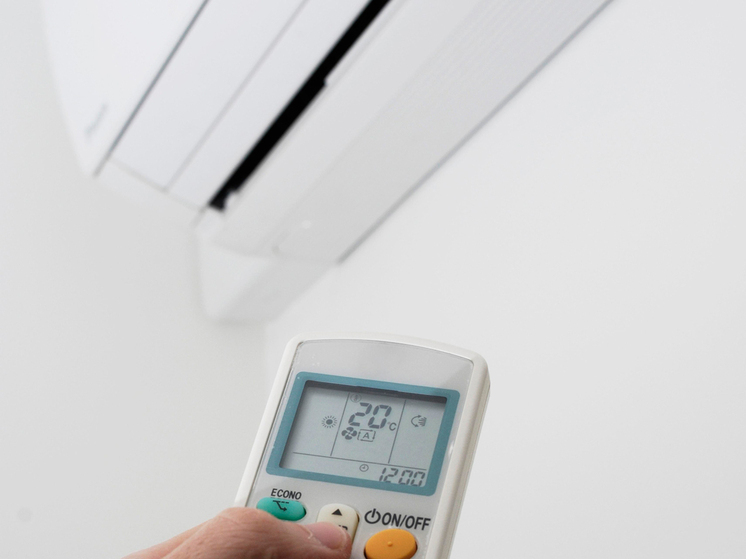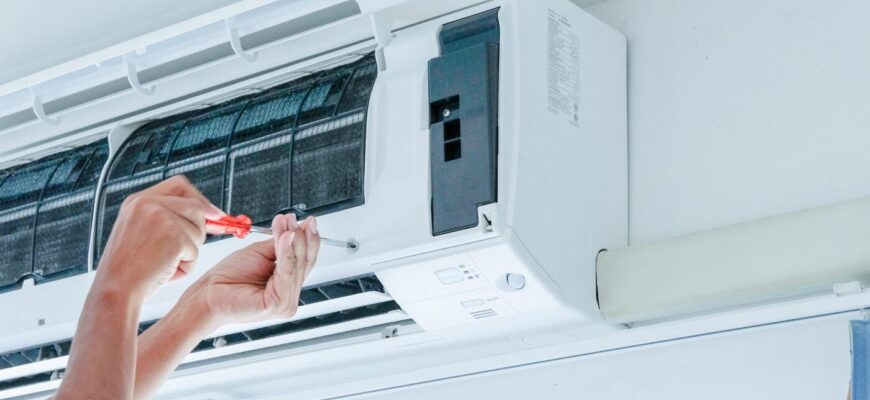As temperatures soar and humidity levels climb, the comforting hum of an air conditioner often sounds like a symphony of salvation. It’s the modern-day knight in shining armor, rescuing us from the sweltering grip of summer heat. But what if this technological marvel, designed to bring us solace, secretly harbors a less benevolent nature? Experts suggest that without proper care, your trusted AC unit can transform from a refreshing friend into a stealthy foe.
We’ve all been there: a few hours spent in an air-conditioned room, only to emerge with a sniffle, a tickle in the throat, or a persistent dry cough. The common culprit we often blame? “A draft.” It seems logical enough – a stark contrast between outdoor heat and indoor chill. However, medical professionals increasingly point an accusing finger not at the temperature differential itself, but at the air conditioner, which, when neglected, becomes an unwitting breeding ground for harmful bacteria and fungi.

- The Science of the Unseen Menace
- The Crucial Role of Filters and External Units
- Transforming Foe into Friend: Essential Maintenance Strategies
- 1. Regular Filter Cleaning: The DIY Essential
- 2. Professional Annual Servicing: The Deep Clean
- 3. Specialized Filter Replacement: Beyond the Mesh
- Smart Operation: Cooling Without the Compromise
The Science of the Unseen Menace
An air conditioner, when in pristine condition, is designed to cool and dehumidify, not to produce pathogens. The trouble begins when maintenance lapses. Inside the unit, particularly within the evaporator coil and drainage system, a perfect storm for microbial proliferation brews: moisture from condensation, warmth generated by the compressor, and an abundant supply of dust and airborne particles drawn in from the room. This trifecta creates an ideal habitat for mold spores and various bacteria to multiply at an alarming rate.
Warning Sign: A tell-tale sour or musty odor emanating from your AC unit is often the first, undeniable indication of a mold infestation. This symptom should never be ignored, as it signifies a potential health hazard.
Once established, these microscopic squatters become airborne when the system is operational, scattering their spores and particles throughout your living space. For individuals with compromised immune systems or those prone to allergies, inhaling these contaminants can trigger significant health responses, including allergic rhinitis, conjunctivitis, and even acute bronchial asthma attacks. While less common in residential units than in large industrial systems, the principle of airborne transmission of microorganisms like Legionella pneumophila (the bacterium responsible for Legionnaires` disease) underscores the importance of a clean system.
The Crucial Role of Filters and External Units
Air filters are the frontline defense of your AC system. When these filters become clogged with months of accumulated dust and debris, they cease to be a protective barrier. Instead, they transform into a microbial nursery, disseminating unpleasant, stale odors along with potential pathogens. Think of them as tiny, neglected ecosystems within your home, ironically working against the very air quality they are supposed to improve.
While the external condenser unit has a less direct impact on indoor air quality, its condition significantly affects the system`s overall efficiency. A build-up of dirt, dust, pollen, or leaves on its coils can impede heat exchange, forcing the unit to work harder. This, in turn, can contribute to excessive condensation indoors, exacerbating the conditions favorable for internal microbial growth and reducing the system`s lifespan.
Transforming Foe into Friend: Essential Maintenance Strategies
To ensure your air conditioner remains a refreshing ally rather than a health liability, adherence to a consistent maintenance regimen is paramount:
1. Regular Filter Cleaning: The DIY Essential
- Frequency: During peak summer months, clean the mesh filters of your indoor unit at least once every two weeks.
- Method: Use warm, soapy water. It`s simple, effective, and avoids introducing new irritants. Avoid harsh disinfectants, as their residues can potentially trigger allergic reactions when aerosolized.
- Preparation: Always ensure filters are completely dry before reinstallation to prevent immediate mold regrowth. Patience here pays dividends in clean air.
2. Professional Annual Servicing: The Deep Clean
Consider this a yearly health check-up for your AC system. Before the cooling season begins, schedule a professional service. A qualified technician will:
- Perform a thorough chemical cleaning of the evaporator coil and internal drainage pan, addressing the core breeding grounds.
- Clear and flush the drainage tube to prevent water stagnation, ensuring proper condensate removal.
- Inspect and clean the outdoor condenser unit, removing accumulated dust, debris, and foliage to maintain optimal efficiency.
3. Specialized Filter Replacement: Beyond the Mesh
If your AC model features advanced carbon or other fine-particle filtration systems, consult your user manual for recommended replacement schedules. Typically, these require changing every six months to maintain their efficacy in trapping finer pollutants and odors.
Smart Operation: Cooling Without the Compromise
Beyond cleaning, how you operate your air conditioner also plays a vital role in your health and comfort:
- Temperature Moderation: Resist the urge to set your AC to extreme low temperatures, especially when outdoor temperatures are scorching (+30°C or higher). A drastic temperature difference creates significant physiological stress for your body. The optimal indoor temperature range is generally considered to be 20-23°C (68-73°F) – cool enough for comfort, warm enough for health.
- Airflow Direction: Never position yourself directly in the path of the cold air stream. Adjust the vents to direct air upwards or to circulate it broadly across the room. Direct blasts are a sure way to invite discomfort.
- Ventilation is Key: Remember, an air conditioner cools and recirculates existing indoor air; it does not introduce fresh air from outside. Regular ventilation (opening windows for short periods) is essential for maintaining healthy indoor air quality and preventing stale air syndrome.
- Monitor Humidity: Air conditioners inherently dehumidify, which is often a blessing in humid climates. However, excessively dry air (below 40% humidity) can irritate mucous membranes, leading to discomfort, dry skin, and increased susceptibility to respiratory issues. Consider a humidifier if your indoor air becomes uncomfortably arid.
In our relentless pursuit of comfort, it`s easy to overlook the diligent machinery working tirelessly behind the scenes. Your air conditioner is a sophisticated system, and like any intricate device, it demands respect, attention, and regular care. By understanding its potential pitfalls and adopting simple yet effective maintenance and usage habits, you can ensure your AC remains a true ally, providing clean, cool air without an ounce of hidden peril. After all, a truly comfortable home is, first and foremost, a healthy one.








